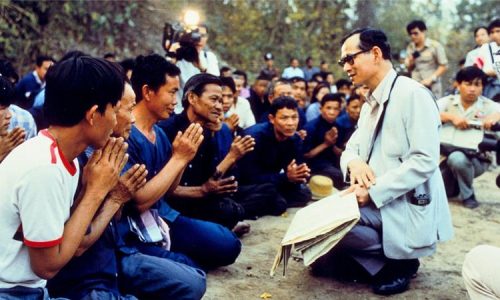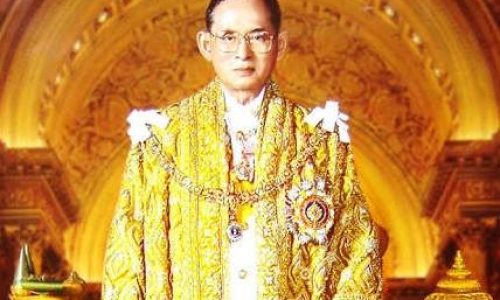A Look Back at the Achievements of King Rama IX
28 december 2016
As anyone who follows Thailand must know now, the country’s ninth King of the Chakri dynasty – which founded the new capital in Rattanakosin, or modern day Bangkok – His Majesty Bhumibol Adulyadej, passed away on October 13, 2016. It is a loss that will be felt for a long time to come.
Not only was His Majesty the longest-reigning living monarch in the world, but his efforts to unite the country and inspire his subjects to greater things placed him in a uniquely revered position.
Westerners have an interesting relationship with monarchy, which has largely been relegated to a ceremonial role, if it even exists. But to Thais, the role of HM Rama IX went much deeper than that. His reign affected nearly every aspect of Thai life; he provided the solid foundations of moral compass, father figure, and cultural role model for modern Thailand to flourish.
It’s hard to imagine a modern figure of similar significance in Western countries, or any country for that matter. Politicians promise but often don’t follow through; businessmen and philanthropists come close; movie stars use their celebrity to draw attention to noble causes. These are all well-intentioned notions, but even if success is achieved, few of these initiatives manage to evolve and remain influential for over 70 years.
The Early Days
Born in Mount Auburn Hospital in Cambridge, Massachusetts, due to his father, brother of King Rama VII, studying medicine there, the young Bhumibol studied in Switzerland as a boy, changing his major to law and political science when it became clear he would be Siam’s next king. After ascending to the throne in 1946, he returned to Thailand in 1950 and was, with great ceremony, declared King Rama IX.
Rarely seen without a camera around his neck, His Majesty put considerable effort into documenting the lives of farmers, vendors, laborers, and people of all stripes on his many trips throughout the Kingdom. Indeed, it was these trips that inspired him to initiate the Royal Development Projects, ambitious undertakings with broad scope that improved the lives of many millions throughout the country.

Working For Positive Change
The first project in 1951 authorized the Department of Fisheries to work with the UN’s Food and Agriculture Organization to acquire fish stock. These were then used to seed populations throughout Thailand’s arid northeast to provide a protein-rich dietary supplement.
The project was such a success that His Majesty worked to create new ones, greatly increasing the quality of life and economic prospects for areas in which they were active. Roads opened up rural areas to trade while cloud-seeding programs brought rain. Hydro-electric projects generated power and drug-eradication initiatives saved lives, among many other types of programs. HM was even awarded a patent for an easy-to-assemble aerator that locals could use to oxygenate water. The Royal Projects continue to this day, supporting communities and fueling innovations throughout the country.

A Passionate Man
Among His Majesty’s other passions was music. When he wasn’t playing sax, clarinet, trumpet, guitar or piano with his jazz band, the Au Saw Friday Band – or jamming with the likes of Benny Goodman and others – he was composing, authoring 48 songs over the course of his lifetime, many of which can still be heard in cafes, waiting rooms, hotel lobbies, and shopping malls throughout Thailand.
The legacy and very real impact His Majesty has had on the lives of millions is demonstrated by the photos displayed reverently throughout Thailand of King Bhumibol in restaurants, gas stations, shops, homes, and street corners. You’ll witness this on your travels with us, even in the most remote of villages.
In the recent video of the King’s Anthem played before films in Thailand’s cinemas, we see an ocean of 200,000 mourners at the Grand Palace singing in unison. The imagery is breathtaking and inspiring. A symbol of unity and dignity, we at Smiling Albino feel extremely fortunate to have lived in the era of King Rama IX
Ready to planning your next adventure?
Get in touch with us or keep exploring.
